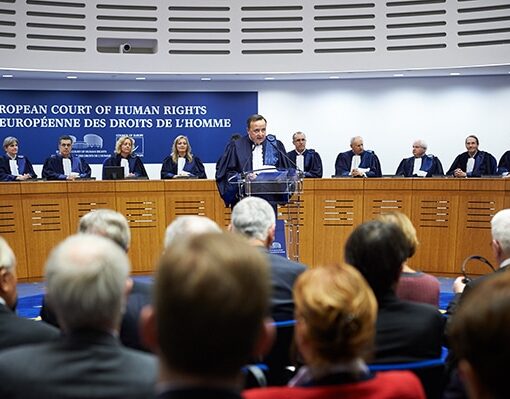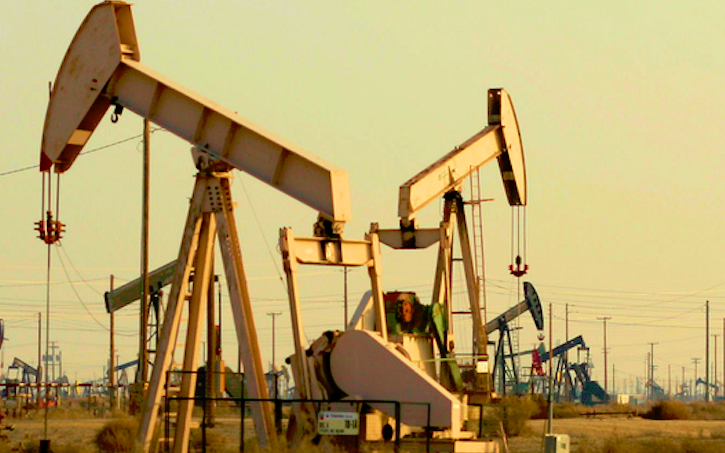By Korey Silverman-Roati
Background
Starting in 2017, cities, counties, and states across the United States have filed claims (see here and here) in state courts against fossil fuel companies seeking redress for the climate harms their products have caused. Many of these cases asserted nuisance and other tort law claims. (More recently, states and municipalities have asserted claims under consumer protection laws.). The plaintiffs in these cases allege that the companies knew the harms their products would cause, that the companies failed to warn and misled the public about those harms, and that the products have caused damages in the form of rising seas, more frequent and severe storms, heat waves, and wildfires, among other climate change impacts.
:max_bytes(150000):strip_icc():format(webp)/GettyImages-489082308-5ab516c931283400370473f3.jpg)
Since 2017, these cases have been mired in a nearly five-year fight over whether they should be heard in state or federal court. Fossil fuel company defendants want the cases heard in federal court, where they can argue that the cases should be quickly dismissed on the grounds that federal common law climate claims are displaced by the Clean Air Act. Local and state government plaintiffs want the cases to remain in state court, where they can argue that climate nuisance claims are similar to past common law efforts to hold companies accountable for misleading the public about their products’ harms, like those against tobacco companies. The vast majority of courts that have ruled on this issue have said the climate claims should remain in state court. Yesterday, for the first time, a state court in Hawai‘i issued a ruling denying a motion to dismiss in a climate nuisance case, a key step in the case’s progression towards trial.
The Hawai‘i Circuit Court’s decision
The Hawai‘i trial court denied fossil fuel companies’ motion to dismiss the City and County of Honolulu’s climate change lawsuit for failure to state a claim. The court described the case as “an unprecedented case for any court, let alone a state court trial judge,” but concluded that it was “still a tort case” and “based exclusively on state law causes of action,” primarily failures to disclose, failures to warn, and deceptive marketing.
The court distinguished the Second Circuit’s decision in City of New York v. Chevron Corp., which affirmed the dismissal of state-law public nuisance, private nuisance, and trespass claims. The Second Circuit framed New York City’s claims as targeting “lawful commercial activity” in a way that would compel development of pollution control measures, thereby regulating cross-border emissions. The defendants in Honolulu’s case similarly argued that the claims sought de facto regulation of global fossil fuel emissions. The Hawai‘i court, however, found Honolulu’s framing of its claims as traditional tort law claims to be “more accurate.” The court said the causes of action were “well recognized” and “tethered to existing well-known elements” such as duty, breach of duty, causation, and limits on actual damages. The court wrote that “[a]s this court understands it, Plaintiffs do not ask for damages for all effects of climate change; rather, they seek damages primarily for the effect of climate change allegedly caused by Defendants’ breach of long-recognized duties”; therefore, the defendants’ liability, if any, would result “from alleged tortious conduct, and not on lawful conduct in producing and selling fossil fuels.”
Given Honolulu’s framing of the claims, the Hawai‘i court concluded that neither the Clean Air Act nor federal common law preempted the claims. First, the court found “no unique federal interest” in the alleged failure to disclose harms or in the alleged deceptive promotion of fossil fuels. The court cited states’ “broad authority to protect residents’ health, safety, property, and general welfare,” and said this power “was not to be preempted unless that was the clear and manifest purpose of Congress.” Citing Massachusetts v. EPA, the court stated that states have “a legitimate interest in combatting the adverse effects of climate change.” Second, the court found no “significant conflict” between any “concrete and specific” federal policy or interest and the application of Hawai‘i law. Third, the court found that at this stage of the litigation the defendants had made “no concrete showing that a damages award in this case would somehow regulate emissions.” The court noted that Honolulu had “repeatedly” conceded that the case “does not impact Defendants from producing and selling as much fossil fuels as they are able, as long as Defendants make the disclosures allegedly required, and do not engage in misinformation.” The court stated that construing damages awards in tort cases as impermissible regulation would intrude on “historic powers of state courts” and potentially preempt common types of cases such as class action lawsuits, products liability cases, cases against pharmaceutical companies, and consumer protection litigation.
In addition, the court rejected contentions that the out-of-state or international character of some of the conduct at issue made preemption appropriate, stating that “[w]ithout the power to hold tortfeasors liable for out-of-state conduct, municipalities such as Honolulu could be hard-pressed to seek redress.” On this topic, the court also noted that it would address motions to dismiss on personal jurisdiction or due process grounds in separate orders, and that the court hoped to finish these remaining rulings “this week or next.”
Regarding defendants’ arguments that this case and other climate change cases are based on “artful pleading,” the court stated: “Respectfully, we often see artful pleading in the trial courts, where new conduct and new harms first arise.” The court continued: “Here, the causes of action may seem new, but in fact are common. They just seem new—due to the unprecedented allegations involving causes and effects of fossil fuels and climate change. Common law historically tries to adapt to such new circumstances.”
The court noted that its ruling was “a brief outline of the court’s analysis” and directed the parties to follow Hawai‘i’s procedural rules to formalize the ruling, which will involve Honolulu, as the prevailing party, preparing an order in accordance with the ruling and attempting to secure approval from the other parties; parties who object to the draft order must submit a statement of objections and reasons for objection as well as their own proposed order. The court encouraged the parties to add “particular findings, analysis, or citations” to the outline, “if necessary.”
Read the full decision here.
Implications for climate cases against fossil fuel companies
This decision is a significant win for the plaintiffs. As noted above, this is the first instance of a state court ruling on a motion to dismiss in these climate nuisance cases filed in state court, and the court ruled in favor of the plaintiffs. In doing so, the court affirmed many of the plaintiffs’ arguments that the claims are straightforward common law claims. Next, the court will rule on motions to dismiss on personal jurisdiction and due process grounds. If the plaintiffs are successful, the case will move towards discovery and trial, which could present an opportunity for Honolulu to unearth evidence about fossil fuel company knowledge of the harms their products cause. Through investigative journalism, the public is already aware that fossil fuel companies have known for decades that burning fossil fuels would cause significant climate harms. Further evidence produced through discovery and trial could add more detail to this historical record and bolster plaintiffs’ claims.
While this case proceeds, the fight over whether these types of claims should be heard in federal or state court continues. The defendants’ appeal of the remand order in Honolulu’s case is still pending in the Ninth Circuit, and the fossil fuel industry defendants in similar cases have uniformly removed them to federal court. The majority of federal district and appellate courts that analyzed the jurisdictional issues have ruled that they should be heard in state court, with the First, Fourth, Ninth, and Tenth Circuits upholding remand orders in the initial round of appeals. During this process, the parties litigated over the extent to which the decision to remand the cases to state court was reviewable on appeal. The Supreme Court weighed in – ruling in May 2021 that appellate courts could review all aspects of the decision to remand. Since that decision, the Tenth Circuit reviewed six grounds for removal in a case brought by Boulder County and two other plaintiffs and ruled this month that none of them support federal removal jurisdiction, affirming the decision to send the case back to state court. The First, Second, Third, Fourth, and Ninth Circuits are expected to issue decisions in the coming months on the jurisdictional issues. If the plaintiffs succeed, we are likely to see more state courts around the country weighing in on the merits of these cases and whether they should proceed to discovery and trial.
Korey is the senior fellow in carbon management and negative emissions at the Sabin Center for Climate Change Law





